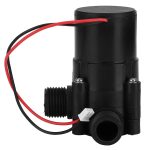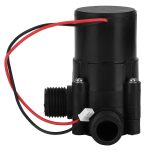Introduction: Taming Your SAP Landscape with LaMa
Managing multiple SAP systems can be complex. SAP Landscape Management (LaMa) simplifies this, automating tasks and centralizing control. This guide provides a comprehensive overview of LaMa, focusing on its use in virtualized environments. It’s important to note that LaMa is for managing SAP systems, not for landscape design.
Key Features and Benefits: Why Choose LaMa?
LaMa offers a centralized platform for managing your entire SAP landscape. Key benefits include:
- Centralized Management: Control all systems from a single console.
- Automation: Automate tasks like system provisioning, copying, and patching.
- Resource Optimization: Dynamically allocate resources based on demand.
- Performance Monitoring: Gain real-time insights into system performance.
- Enhanced Security: Protect your SAP data with robust security features.
These features likely contribute to reduced administrative overhead, improved response times, and better resource utilization. Ongoing research suggests further potential for AI and machine learning to enhance automation and predictive maintenance.
Understanding LaMa Editions: Standard vs. Enterprise
Choosing the right LaMa edition is crucial. Here’s a comparison:
| Feature | Standard Edition | Enterprise Edition |
|---|---|---|
| Core Automation | Yes | Yes |
| Advanced Automation | Limited | Extensive |
| System Provisioning | Basic | Automated, Advanced |
| Integration with other SAP tools | Basic | Deep Integration |
| Cost | Lower | Higher |
| Ideal For | Smaller, Less Complex Landscapes | Larger, More Complex Landscapes |
The Enterprise edition excels in advanced features like automated system cloning and zero-downtime maintenance. Consult with your SAP representative for detailed licensing information.
System Requirements and Prerequisites: Preparing for LaMa
Before installation, ensure your environment meets these requirements:
- SAP NetWeaver AS JAVA: 7.50 with Support Package 15 or later is strongly recommended.
- Sufficient Hardware Resources: Consult SAP documentation for specific requirements.
- Updated Support Packages: Apply the latest Support Packages using the Software Update Manager (SUM).
Proper preparation is crucial for a smooth installation process.
Step-by-Step Installation Guide: Getting LaMa Up and Running
This guide assumes installation using SUM (Software Update Manager):
- Download: Obtain the necessary .SCA files (VCMCR4E, VCM, and VCMENT if needed) from the SAP Software Center.
- Prepare SUM: Download and upload SUM to your server, then launch it via the correct URL.
- Installation: Log in with
adm credentials. Provide required details, including .SCA file locations and AS Java Administrator credentials. Critically, back up your directories and database before proceeding. Deploy the LaMa files. - Configuration: After deployment, access the SAP NetWeaver Administrator. Navigate to Configuration → Scenarios → Configuration Wizard. Launch the “Initial Setup for SAP Landscape Management” task, choosing either “Typical” or “Custom” configuration.
For distributed NetWeaver Java Stack installations, consult the official SAP documentation for specific instructions.
Post-Installation: Connecting Your Systems
After installing LaMa, integrate the systems you want to manage:
- Network Connectivity: Ensure unimpeded network communication between LaMa and each managed system.
- SAP Host Agent: Install the SAP Host Agent on each managed system.
- LaMa Pool: Create a “Pool” within LaMa to group managed systems logically.
Configuration and Setup: Fine-tuning LaMa
Configure LaMa to meet your specific needs. This might involve setting up automated workflows, configuring monitoring thresholds, and integrating with other SAP tools. Consult the SAP documentation for detailed guidance.
Best Practices: Optimizing LaMa Performance
- Regular Updates: Keep LaMa and its connectors up-to-date.
- Performance Monitoring: Continuously monitor system performance and resource utilization.
- Robust Security Measures: Implement stringent security protocols.
Troubleshooting Common Issues
- Connection Problems: Verify network connectivity and firewall settings.
- Permission Errors: Confirm user authorizations.
- Performance Issues: Investigate potential bottlenecks.
Future of LaMa: A Glimpse Ahead
Current research points to the potential integration of AI and machine learning in future LaMa releases, further automating tasks and improving predictive capabilities. Stay informed about updates and advancements to maximize your LaMa investment.
Conclusion: Mastering Your SAP Landscape
LaMa empowers organizations to effectively manage their SAP landscapes, optimizing resources, improving performance, and reducing operational costs. This guide has provided a comprehensive overview, from installation to advanced topics. While research suggests probable future advancements, continuous learning and adaptation remain key to maximizing the benefits of LaMa.
Resources and Links
- SAP Help Portal for SAP Landscape Management – Official documentation for LaMa. Always consult this for the most accurate and up-to-date information.
- SAP Community Network – Connect with other SAP users and experts. A valuable resource for troubleshooting and staying updated.
This restructured article offers a more concise and impactful presentation of information about SAP LaMa, eliminating repetition and redundancy while incorporating the suggested improvements and additional points for a more comprehensive and engaging guide.
- Hydroelectric Power Basics How Water Is Used For Electricity - February 26, 2026
- Portable Water Generators Power Off-Grid Homes and Adventures - February 25, 2026
- Portable Hydroelectric Power Generators Light Up Off-Grid Living - February 24, 2026
















